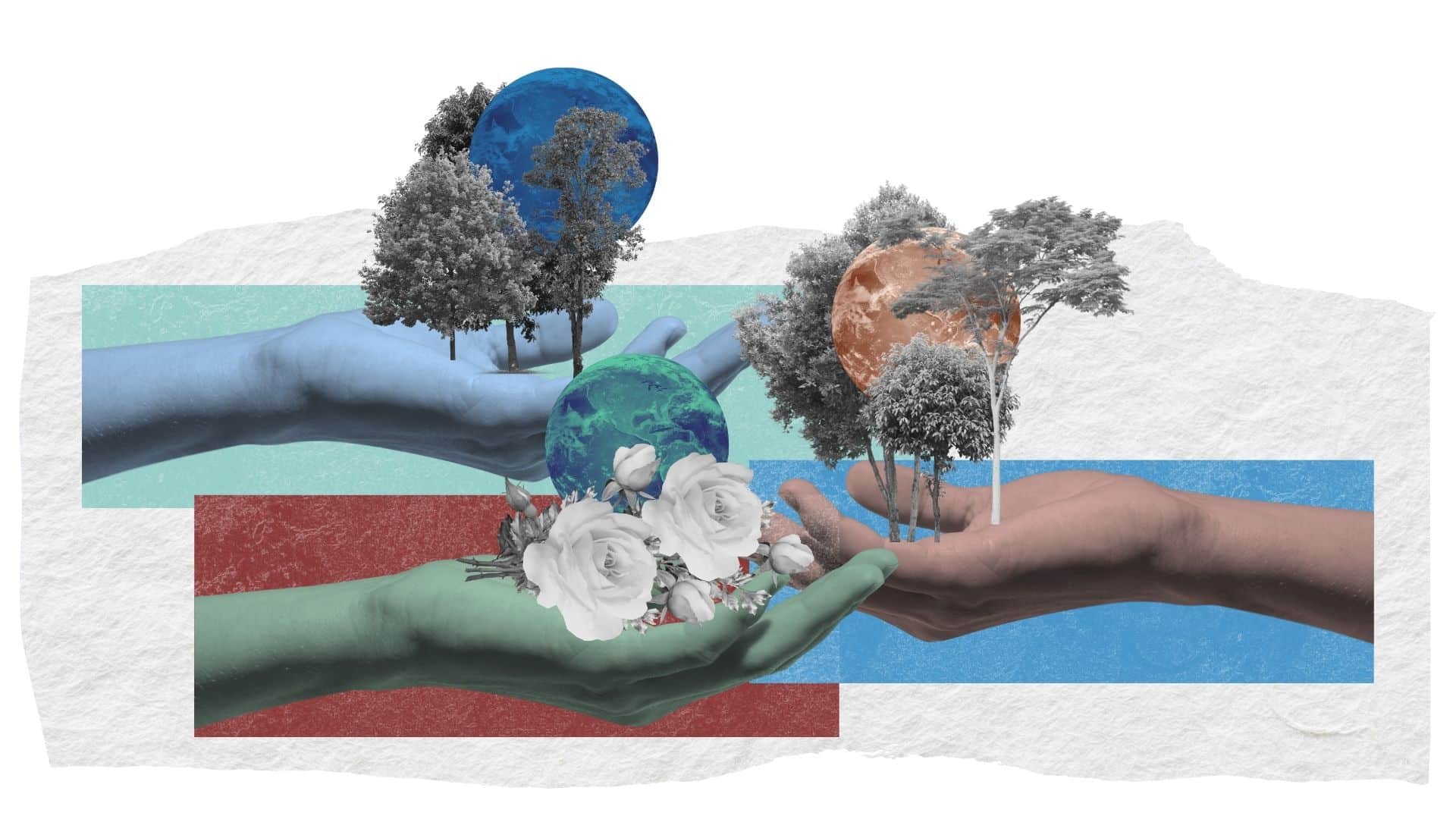Creation matters “because it’s the handiwork of God”: Conservationist Peter Harris
Salt&Light celebrates the wonder of God's fingerwork on International Day for Biological Diversity (May 22).
by Gemma Koh // May 19, 2023, 10:25 am
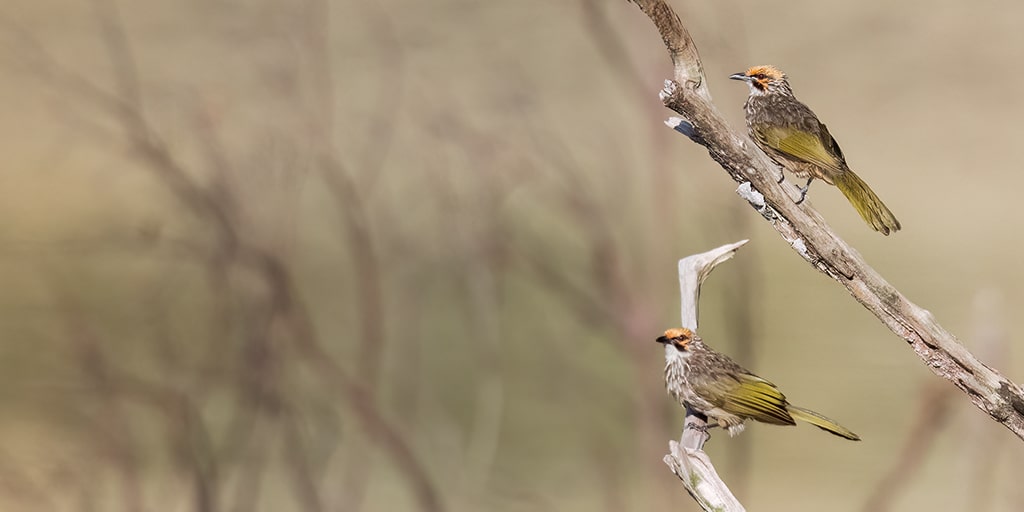
In the last 50 years, the earth has lost 69% of its wildlife. And creatures like the Straw-headed Bulbul (pictured) are under threat of extinction. Singapore has "a particular responsibility to look after this songbird", says Peter Harris. Photo courtesy of Sreedharan Gopalsamy.
Does nature matter because we need it or because it is beautiful?
According to English clergyman-turned-conservationist Peter Harris: “In Christian belief, it matters because it’s the handiwork of God, but mainly because creation worships the Creator and we join our voices to it. That’s what the Psalms tell us.”
Speaking to Salt&Light when he was in Singapore in March, Peter elaborated: “The problem is: We’re knocking out all the voices in the choir one by one as we lose all the species that give their unique praise to God.”
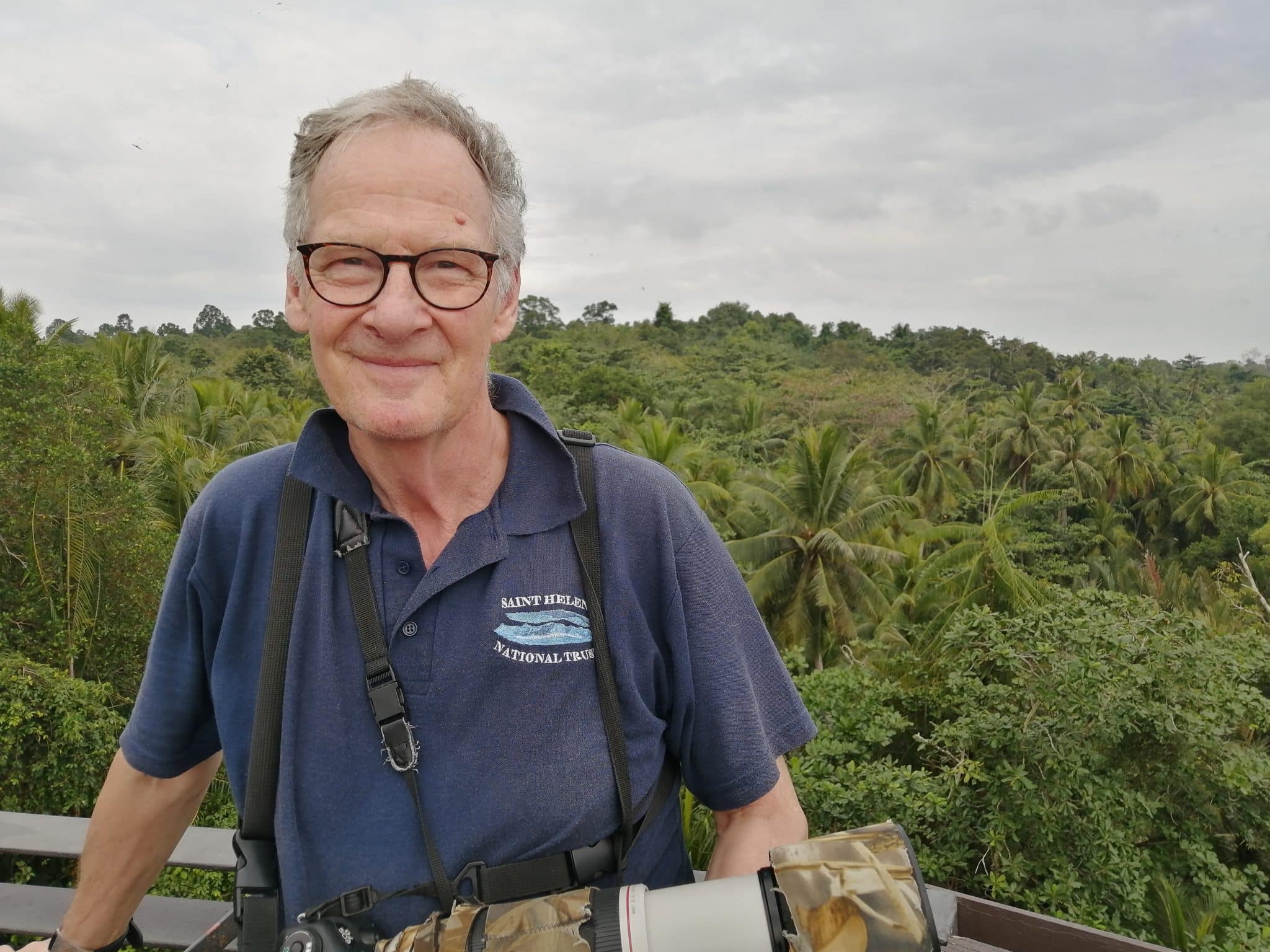
Peter birding on Pulau Ubin during his recent trip to Singapore. Singapore does not yet have a nationally registered A Rocha organisation, but is currently one of 17 countries that benefits from learning opportunities through the Friends of A Rocha network. Photo courtesy of Melissa Ong.
Peter co-founded A Rocha (Portuguese for “The Rock”), which today is a family of conservation organisations in more than 20 countries, living out God’s call to care for creation and equipping others to do likewise.
“Creation worships the Creator and we join our voices to it. That’s what the Psalms tell us.”
It is the only international Christian organisation in the International Union for Conservation of Nature, which classifies itself as “the global authority on the status of the natural world and the measures needed to safeguard it”.
Since 1970, the earth has lost 69% of its wildlife, according to a 2022 World Wildlife Foundation (WWF) report. Studies have shown that even conservation-minded countries like Britain have lost 60% of their flying insects in the last 20 years, which impacts food supply, the wildlife that eat them, and the whole ecosystem.
“It’s a moral and even a spiritual crisis,” said Peter, singling out the Straw-headed Bulbul that is listed as critically endangered globally.
He explains: “The reason it’s been almost wiped out is it because it sings so beautifully, and people capture it for the caged bird trade. So its very beauty is what’s doomed it.”
Singapore is considered a stronghold of the bird, with an estimated 200 to 500 out of the estimated 600 to 1,700 mature individuals left in the world.
“So Singapore has a particular responsibility to really look after it,” said Peter, who shared with Salt&Light more of his thoughts on why conservation is a Gospel concern.
What does the Bible say about caring about God’s creation?
Firstly, the earth is the Lord’s (Psalm 24:1). The Psalms call it God’s “fingerwork”, which expresses His care even more than calling it His “handiwork”. So there’s a huge conservation ethic right there. It is Christ at the heart of His creation, and it’s His wonderful gift to us.
Creation’s meaning is to worship God.
The text of Genesis 9 says: “This is the covenant I am making with every living creature that’s with you – the birds, the livestock, and all the wild animals …”
There’s a covenant with Noah, but it doesn’t just stop with Noah; it is a commitment to maintain the inherent relationship between the Creator and creation.
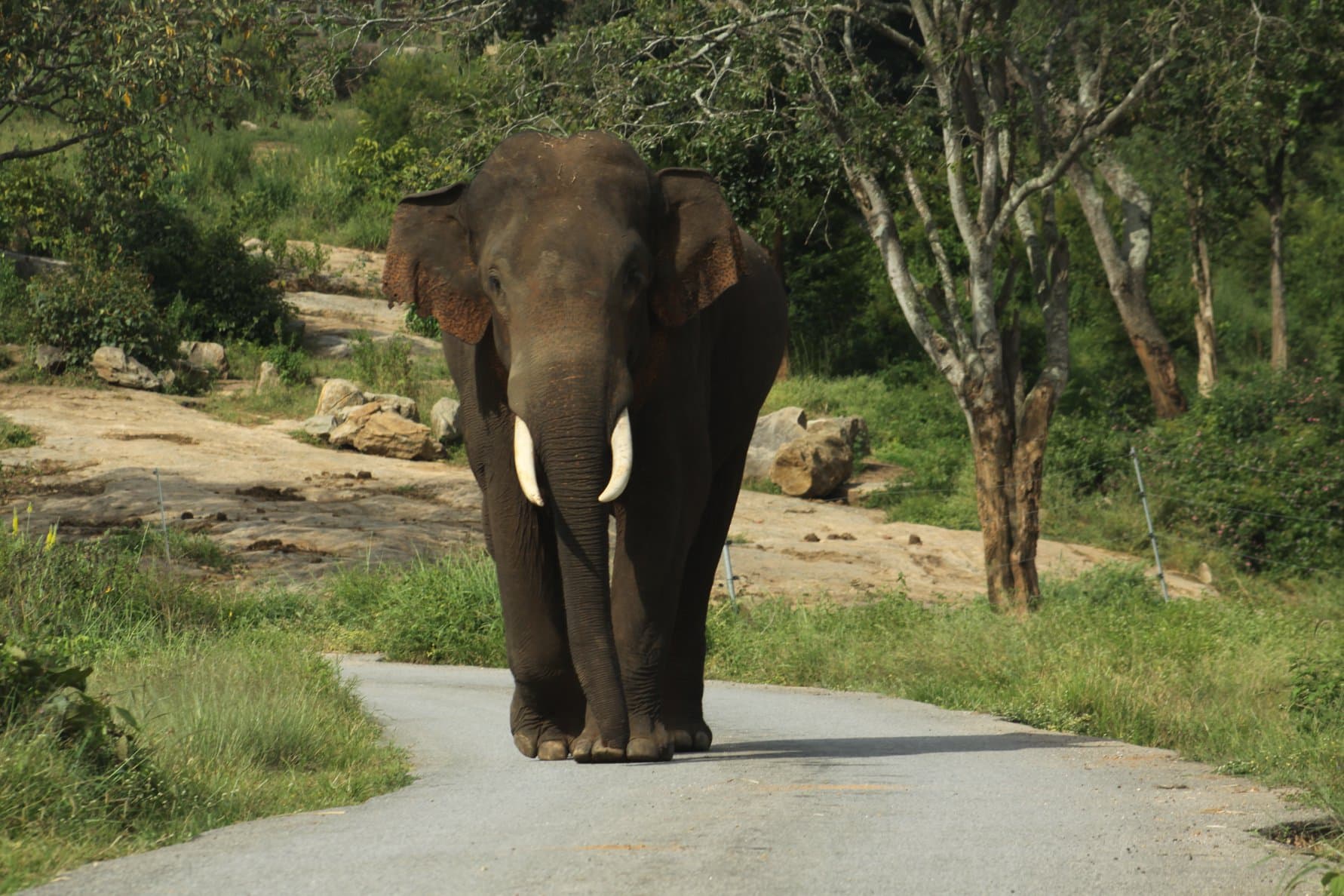
Since 2004, A Rocha India has been conducting research on elephant behaviour around the Bannerghatta National Park outside Bangalore, and comes up with novel ways to help farmers reduce elephant damage to their crops and minimise human-elephant conflict. Photo from A Rocha India Facebook.
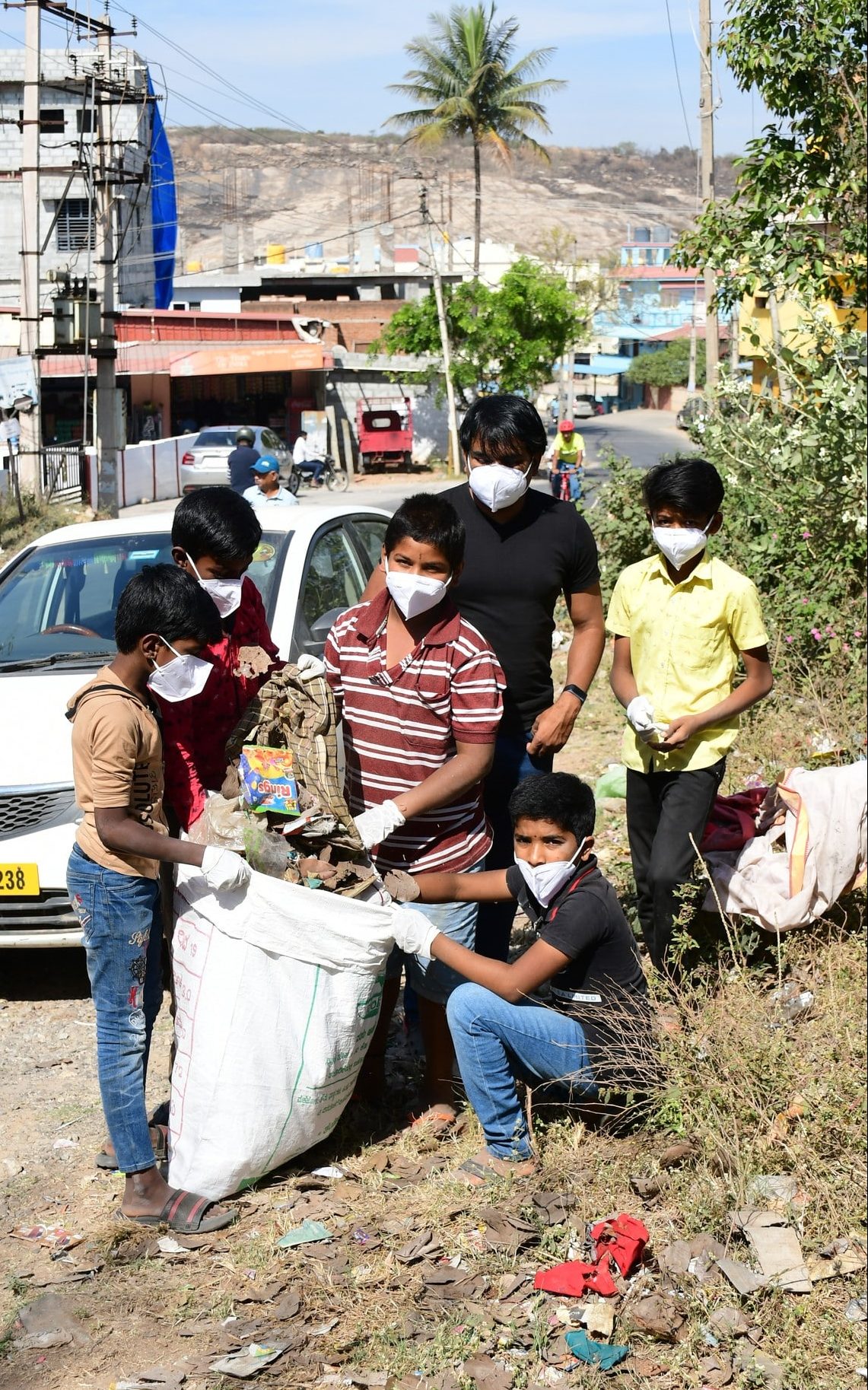
A Rocha India educates young people on issues ranging from elephant conservation to plastic pollution. Pictured is a clean-up drive in February 2023. Photo from A Rocha India Facebook.
In Genesis, it also says it’s our nature as human beings to care for God’s earth. We’re in the garden to “keep” it and to “serve” it, as the Hebrew text says.
What are the top global environmental concerns?
Our broken relationship with God translates into a broken relationship with creation. Christians can’t be indifferent to what’s happening to creation because the consequences of sin are ecological.
Nature does wonderfully well, but what is degrading nature all over the world are people.
Three thousand years before we heard the words “marine crisis”, the prophet Hosea wrote that the broken relationship with God resulted in “lying, stealing, bloodshed and murder”.
“Nature does wonderfully well, but what is degrading nature all over the world are people.”
Hosea then went on to say, “Therefore, the land dries up and the beasts of the field, birds of the air and the fish of the sea are dying” – which describes what is happening now. (Hosea 4:2-3)
It’s incredibly prophetic. Gus Speth (founder and former president of the World Resources Institute) said: “I used to think that top global environmental problems were biodiversity loss, ecosystem collapse, and climate change.
“I thought that with 30 years of good science we could address these problems, but I was wrong.
“The top environmental problems are selfishness, greed, and apathy, and to deal with these we need a spiritual and cultural transformation. And we scientists don’t know how to do that.”
What is the Christian response to the crisis we are in?
First of all, it’s God’s world. He loves it and cares for it, and can give us the wisdom to do something about it.
A Christian responds by saying: “We’re supposed to show what the character of God is like, in this life, before creation is renewed.”
When we started A Rocha, we wanted to see what the Good News would look like not just written in people’s lives, but also written in the landscape. So we set up a field study centre and a bird observatory in Portugal in 1983 and we did that for 12 years – learning what it meant in practice.
We did bird ringing, moth studies, botanical studies, and 2,000 people came and lived with us during that time.
Many say there are more pressing needs – like helping the poor. Why should creation care also be a priority for churches?
Jesus came to reconcile in three areas:
- Our personal lives in Christ
- To reconcile us to each other in works of justice, mercy and healing
- But also to reconcile us with creation.
How can you function if your church is underwater because of exceptional climate change, for example?
We as evangelicals have forgotten that it is our Christ-shaped, Christ-given work to care for creation.

Peter and HealthServe’s Dr Goh Wei-Leong (third from left) meeting with Friends of A Rocha Singapore and Creation Care SG. Photo courtesy of Melissa Ong.

Creation Care SG gives talks and workshops on the biblical basis for creation care and how Christians can care for the world. Photo from creationcaresg.com.
Not everybody can own a farm or have a fishing boat, but we all interact with God’s creation all the time, every day.
“We all interact with God’s creation all the time, every day.”
We all eat, we all drink. We all face questions of what are we going to do with waste. But what we don’t often do is frame it within our faith.
You don’t have a choice as to whether to have a relationship with creation. So will this relationship be shaped by our relationship with Christ?
Or will we just borrow ideas from secular conservation groups and create a new list of do’s and don’ts?
What are examples of how churches are caring for God’s creation?
In 2016, A Rocha UK pioneered Eco Church, an environmental scheme that inspires and assists churches to embed the care for God’s earth in all of church life.
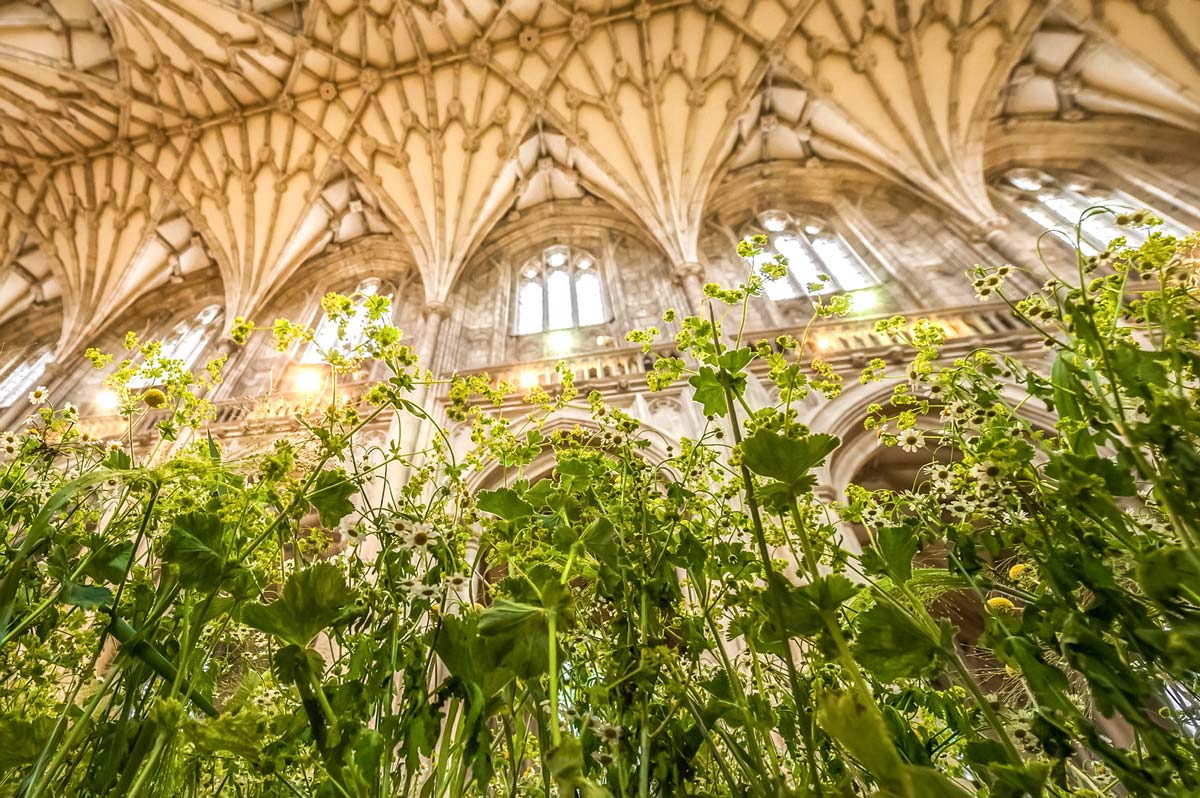
Nine out of 11 churches in the Hope Valley of the UK’s Peak District are registered as an Eco Church. They meet regularly to share ideas on worship, building and land management and lifestyle. Photo from A Rocha UK.
We’ve been renewing worship by working with singers and songwriters to write new music for the church, and working with artists too.
We have to think about how we express our faith materially.
Churches are also looking at their resources, the land, how people get to church, how they’re cooling or heating the church, the lighting … And they’re trying to be faithful in stewarding the material assets that they have as a church.
What can the Christian in the street do?
Whether you’re looking after kids, cleaning, running a hedge fund, or are in estate management, there are infinite creative possibilities for caring for God’s creation.
The knowledge and expertise about how to live in a more environmentally-friendly way is all out there. And every place in the world is different as to what you need to do.
“What is transformative is a renewed relationship with Jesus Christ.”
What is different for Christians is why we do it and how we do it. For us it’s an act of worship.
It should be second nature for us to care for creation and then work that out in what we do.
We won’t become “green” Christians by just following rules like “I’ll eat less meat”, “I’ll ride my bike more often”, “I’ll use public transport”. We all know we do these things. But that’s not transformative.
What is transformative is a renewed relationship with Jesus Christ, the Creator, engaging with Him in that constant cycle of repentance, forgiveness, a new life, which is the Christian life every day.
We practice it in our personal lives. But we’ve forgotten that we need to practice it in our relationship with creation.
Why do some people say they go into nature to worship God?
Scripture says: “The heavens are telling the glory of God; the skies proclaim the work of His hands” (Psalm 19:1) and “There’s no voice nor is there words heard” (Psalm 19:3).
Paul says in Romans, the first things we understand about God, we learn from creation.
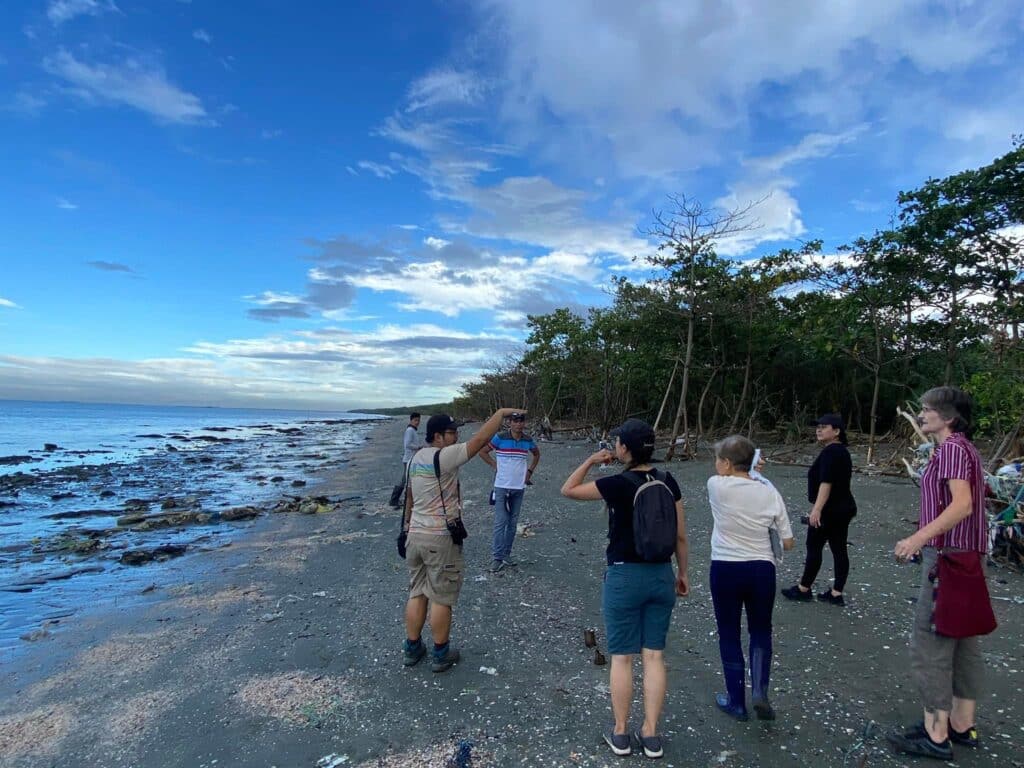
In the Philippines, an A Rocha Associated Project contributes to the restoration of Philippine forests through its Tree-Bute programme, helping sponsors and celebrants to plant native trees to commemorate milestones. Photo from christiansinconservation.org.
I remember some scientist friends in the USA saying to me: “When I’m in a redwood forest, I feel I’m in somewhere holy. Why is that?”
I understand that it’s because that’s how God expressed Himself. He expressed His character through His creation, so that we know Him.
And I think one problem for modern, urban Christians is they’re surrounded by only artefacts made by the people, so it’s really hard to get a sense of the character of God.
For creation care resources from A Rocha International that are helpful to churches, click here.
In July, Creation Care SG will host the inaugural Creation Care Community of Practice for Christians to network and share ideas on integrating environmental stewardship into their churches.
Read about Peter Harris’ journey here:
We are an independent, non-profit organisation that relies on the generosity of our readers, such as yourself, to continue serving the kingdom. Every dollar donated goes directly back into our editorial coverage.
Would you consider partnering with us in our kingdom work by supporting us financially, either as a one-off donation, or a recurring pledge?
Support Salt&Light
